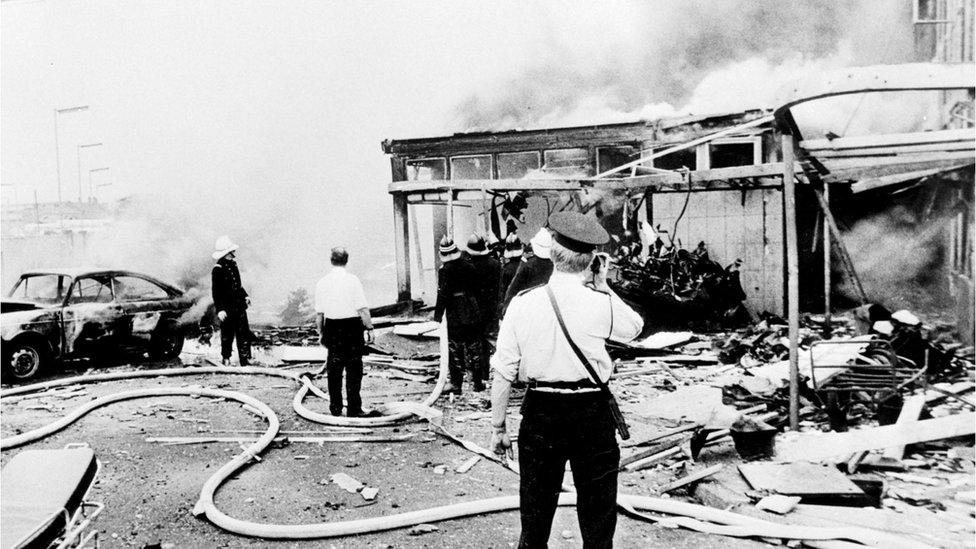Bloody Friday victims' families deserve truth - son
- Published
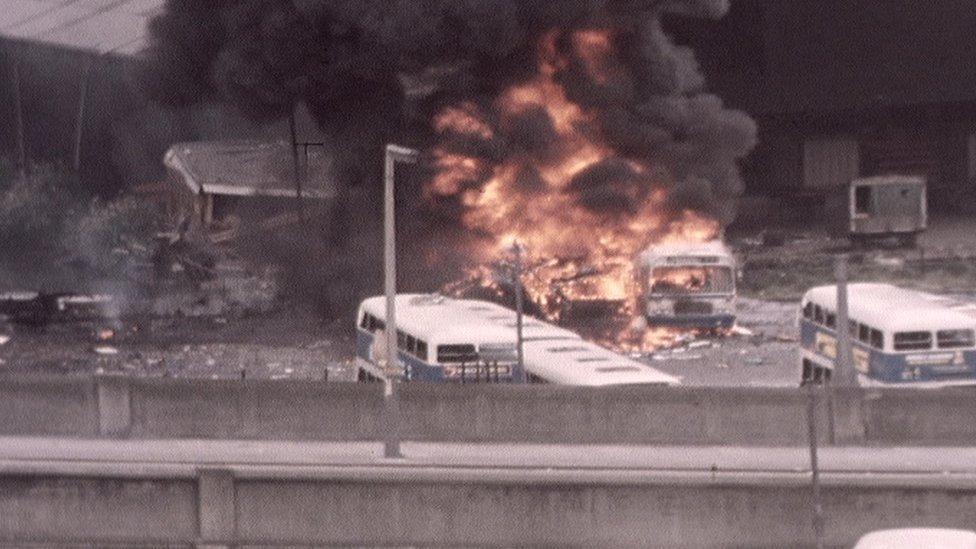
Nineteen car bombs were placed at commercial premises and transport hubs in and around Belfast city centre
The son of a bus driver murdered by the IRA on Bloody Friday in Belfast has said he would like to know the full truth of what happened.
Nine people died and more than 130 were injured when 19 bombs exploded in little over an hour on 21 July 1972.
Robert Gibson, whose father Jackie, 45, was killed at Oxford Street bus station, said: "The truth is something everybody deserves."
He believes there may be people still alive who can provide answers.
Bloody Friday ranks among the most notorious days of the Troubles.
Bloody Friday victims' families deserve truth - son
The car bombs were placed at commercial premises and transport hubs in and around Belfast city centre, exploding one by one after 14:10 BST.
Flying glass and debris from the blasts caused deep lacerations to people caught in the open, while many people lost arms and legs in the explosions and fireballs which followed caused horrific injuries.
One ambulance worker said a victim he encountered was so badly injured that a specialist doctor had to look at them and decide whether they were male or female.
One of the enduring memories of the day for those present in Belfast was the sight of pieces of human bodies being gathered into bin bags.
Mr Gibson told BBC News NI: "There is bound to be information Provisional IRA people have.
Nine people died and 130 were injured when 19 bombs exploded across Belfast.
"I would like to know what my father and his colleagues went into that day.
"Were the protectors protecting them? Could the attackers have done it differently? Were the warnings they had given inefficient?
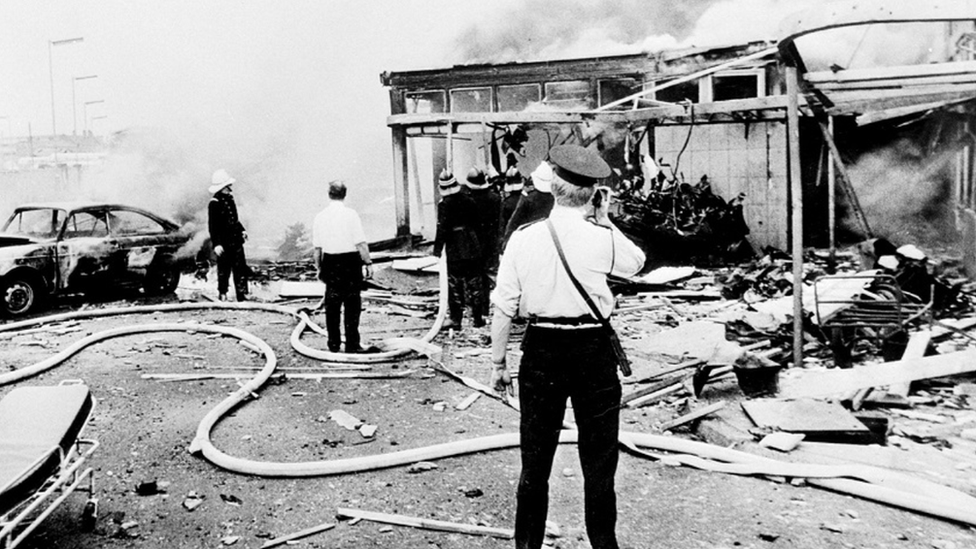
Emergency services at the scene of the explosion at Oxford St bus station
"Those types of things are in my mind at the moment.
"The truth is something everybody deserves and justice, I suppose, is something as a community we will have to work out between us all."
Seven of those murdered were civilians aged between 14 and 65.
The two others were soldiers reacting to the telephoned bomb warnings.
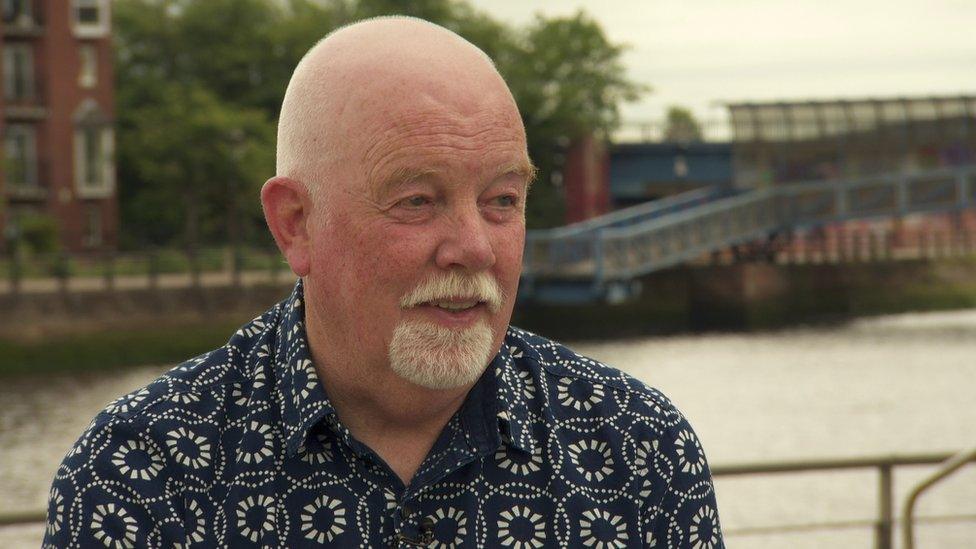
Stan Spray was a newly-qualified 18-year-old firefighter on Bloody Friday
Writing in 1996, Gerry Adams, the former Sinn Féin president, stated the IRA "made a mistake in putting out so many bombs".
He added that civilian fatalities were "a matter of deep regret".
Mr Gibson has folders of official records relating to the event.
He said: "The warnings had been delivered to the various agencies at certain times.
"As far as I know the bus people were on the phone talking to the police possibly about the bomb when the soldiers came in.
"But by that time it was too late."
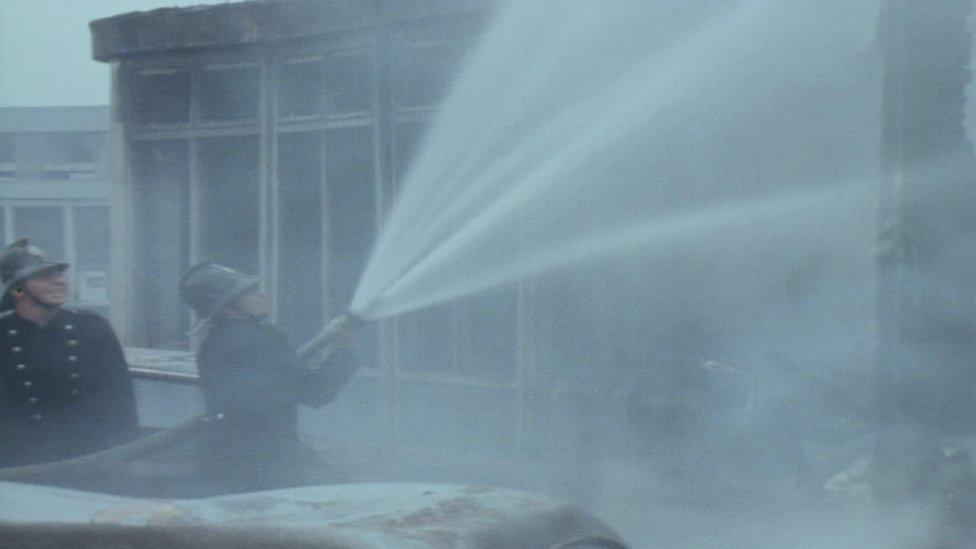
Firefighters try to extinguish the fire at Oxford St bus station
A firefighter who was on duty, Stan Spray, said he was totally unprepared for what he saw.
Aged 18 and newly qualified, he was getting ready for his passing out parade and instead was sent out into what he called "the carnage" on Oxford Street.
He told BBC News NI: "We look back and you ask yourself: 'Why did that happen?'
"That is not for me to answer. There are other people who need to answer those questions not me.
"I was there trying to help clear up chaos and mayhem."
He said every time he drove past the spot he got "a lump in my throat" and thinks of the bombing.
Reflecting on the 50th anniversary he added: "People lost their lives and families were effected forever.
"It is important to remember them."
The bus station no longer exists, having later been demolished to make way for offices and a plaza in front of the Waterfront Hall.
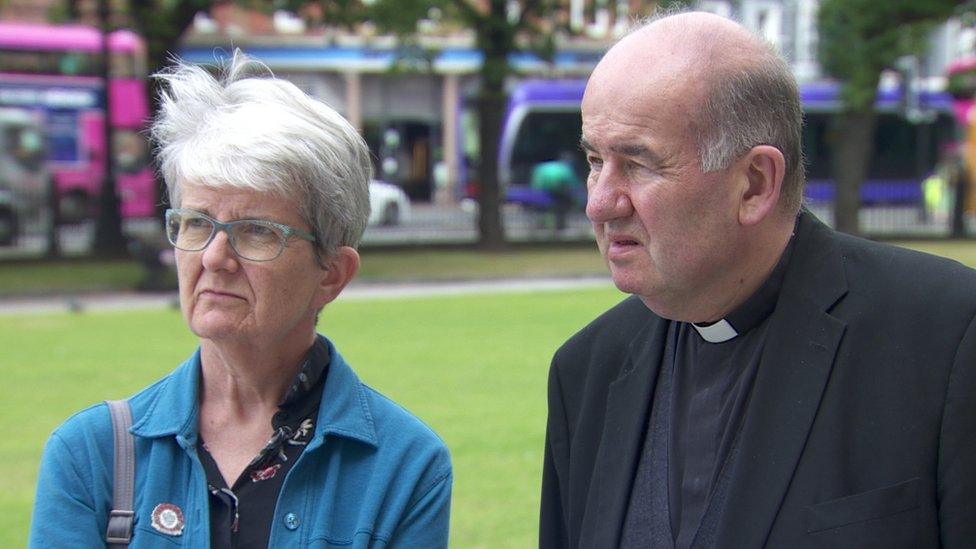
Karen Yip and Fr Roger Parker, the sister and brother of Stephen Parker, paid tribute to him on Thursday
Stephen Parker was 14 when he died in an explosion close to shops on the Cavehill Road in north Belfast, along with Margaret O'Hare, 34 and Brigid Murray, 65.
Stephen's older brother Fr Roger Parker and his younger sister Karen travelled from England and Canada to attend a ceremony at Belfast City Hall on Thursday to mark the anniversary of Bloody Friday.
His father, Rev Joseph Parker, the then chaplain to the Missions for Seamen in Belfast, had to identify Stephen following the explosion.
Fr Parker said he remembered Stephen as "a young man full of life, full of fun".
He recalled that his father identified Stephen via a box of trick matches he had bought when shopping in Belfast the day before.
"That vibrancy, he packed so much into 14 years as is often the case with those who die young, there was just such a life there.
"It has been a very poignant day and a day when one remembers someone who had such a zest for life."
'We don't forget her'
The siblings said it was difficult to return to Belfast, and hoped that "the peace process and all that Northern Ireland has achieved these last years continues and grows".
"No human life is worth any political cause, people have hopefully learned that there is another way to solve their differences," Fr Parker added.
Hugh O'Hare, whose wife Margaret O'Hare was killed on Bloody Friday, said it was important that the victims were remembered.
He said three of their children were with Margaret when she was killed, but they survived.
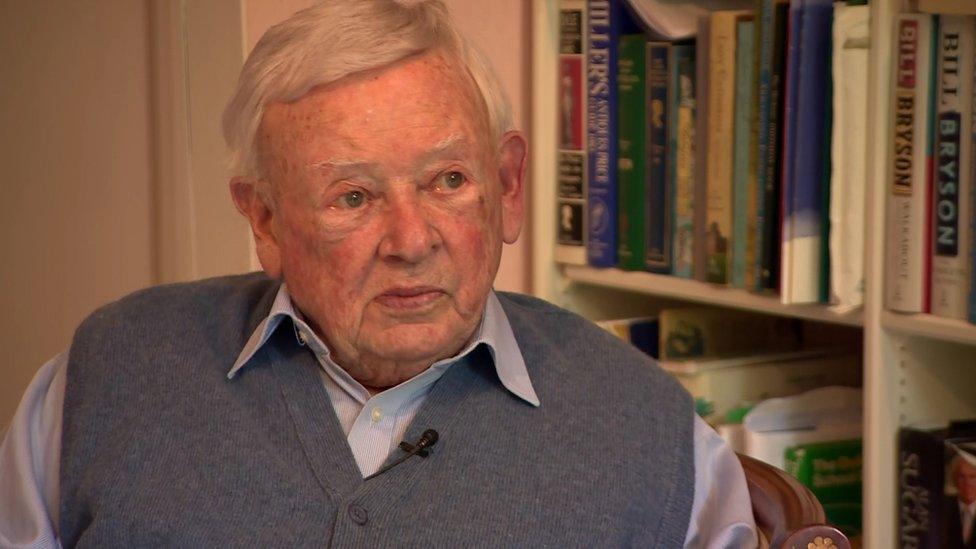
Hugh O'Hare said it was important that the victims were remembered
"We don't forget her," he added.
"We buried her on our 12th wedding anniversary.
"That is part of your life, it is there and it will never leave you until you are six feet under."
Related topics
- Published21 July 2022
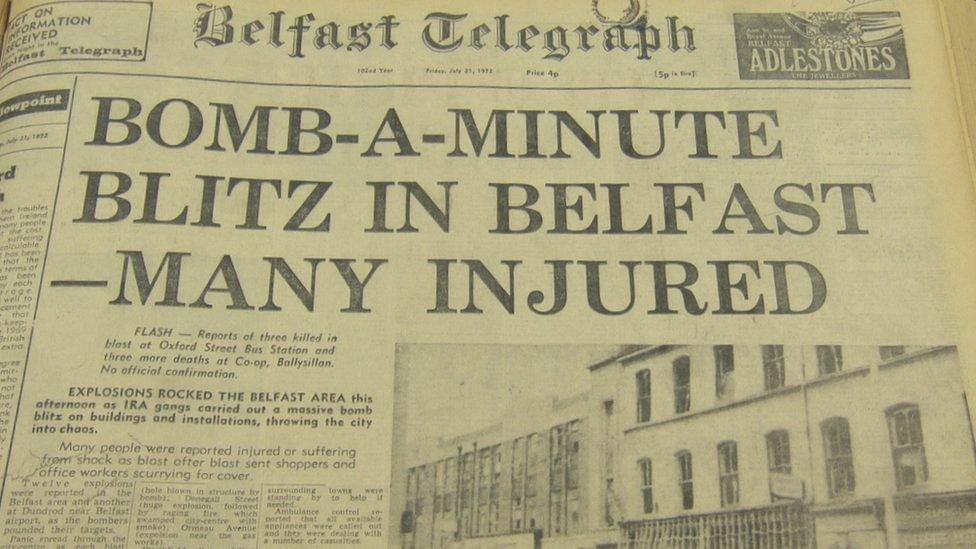
- Published20 July 2012
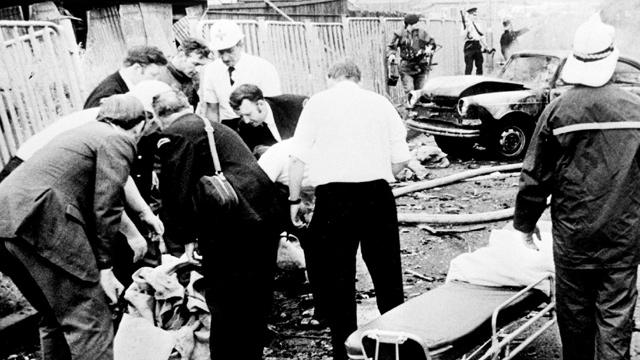
- Published18 February 2022
